We need a sustainable perspective on life with technology
A short but beautiful text titled The universe gives me everything? on a friends blog made me think of what I’ve been reading the last months. In December, I struggled through Yuval Noah Harari‘s literary brilliant 21 Lessons for the 21st Century and had to conclude that Harari believes we are…. screwed. Damn!
Since 2019, I’ve been deeply engaged with the question of how we can empower young people to have a hopeful, courageous, yet uncompromisingly differentiated and skeptical perspective on living with modern technologies. I always read texts like Harari’s with an eye toward my overarching goal of shaping my personal attitude and direction into my own life and integrity toward my fellow human beings.
My work as a community builder is, after all, about teaching people how to creatively use technology. And I don’t want to be the next narcissistic prophet who either reports the end of humanity or conjures up a golden age of AI and the metaverse. The only question is how to do that? How do you define the right attitude and how do you communicate it?
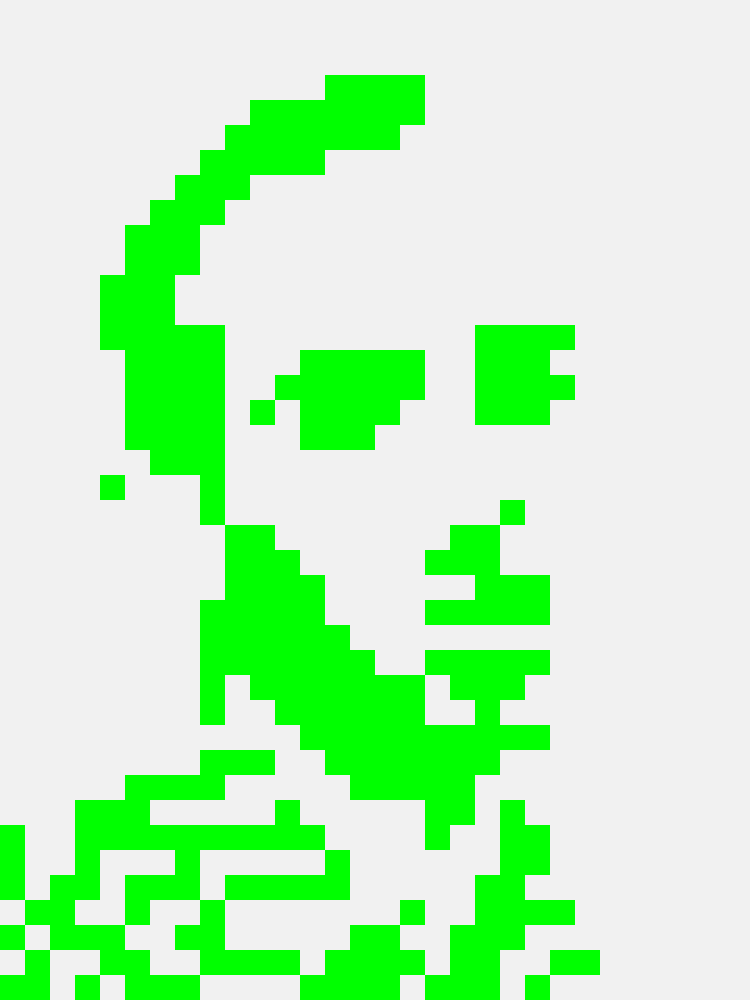
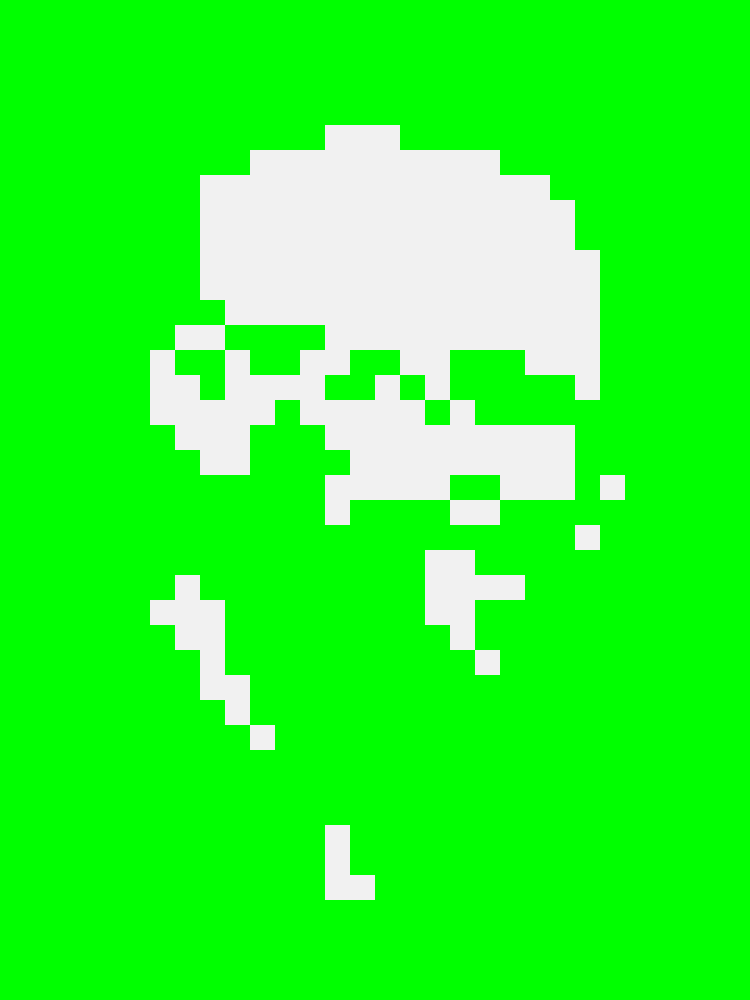

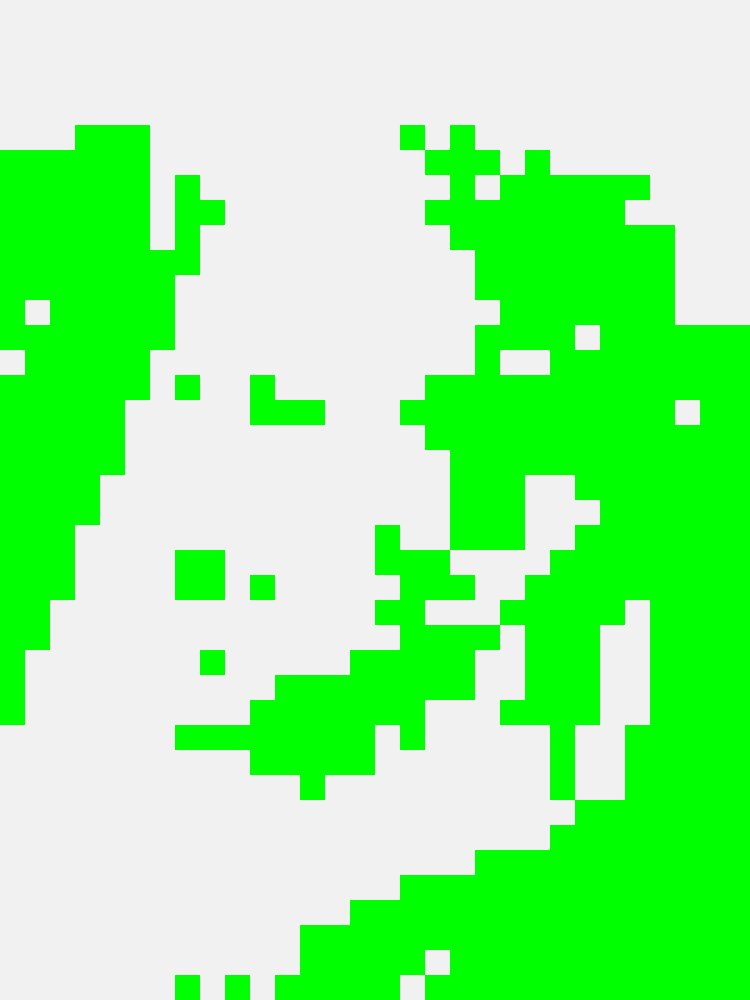
In my research on the relationship of philosophy to current technological developments, I noticed that the literature often has a depressive undertone and paints a dystopian perspective. Good examples are New Dark Age by James Bridle, Radical Technologies by Adam Greenfield, as well as 21 Lessons for the 21st Century and Homo Deus by Yuval Noah Harari. However, this has not only to do with the fact that the situation is really serious, but also with the fact that people react much more strongly to crises and fear than to hope. This can be seen particularly clearly in the news: News portals have constantly outdone themselves in terms of clickbait in recent years, due to the fierce competition and free culture in journalism.
I spoke to a young student, Lily, from London a few months ago who is studying “Creative Computing”. They had read Adam Greenfield and was like, “Fuck! We young people desperately need a healthy and positive perspective on new technologies now!”. Quite a lot of people have the impression that the world is really messed up. And so they retreat into the illusory world of likes and followers to get numb and feel that at least they are intrinsically good and doing everything right.
My bottom line from my studies, from feedback from my community, and from Lily’s wake-up call: we need positive narratives! Perspectives that are curious, courageous, skeptical, consistently nuanced, and honest about the problems we face without hoping for easy solutions and definitive answers.
Here I would strongly recommend Rutger Bregman, a young author whom Harari highly recommends, even though he is, in a sense, a counterpart of the Israeli historian. Bregmann manages the trick of using skepticism to expose patterns of thinking that lead us to believe that everything is hopeless, when exactly the opposite is true if we only believe it. According to Bregmann, we have a faith problem! In Humankind: A Hopeful History he writes: Martin Luther King did not say “i have a nightmare!”. No. He said “I have a dream!”. Faith here does not necessarily mean belief in God, but hope for a good future.
Cynicism and hope work equally like a self-fulfilling prophecy. What matters now is what attitude we cultivate in our lives.
Some books i have worked with in my studies
van Heusden, Bernard, and Pascal Gielen, Arts Education beyond Art: Teaching Art in Times of Change (Amsterdam: Valiz, 2015)
Harari, Yuval Noah, Homo Deus: Eine Geschichte von Morgen (CH Beck, 2017)
Lovelock, James, and Bryan Appleyard, Novozän: Das Kommende Zeitalter Der Hyperintelligenz (CH Beck, 2020)
Bridle, James, New Dark Age: Der Sieg Der Technologie Und Das Ende Der Zukunft (CH Beck, 2019)
Harari, Yuval Noah, 21 Lektionen Für Das 21. Jahrhundert
Greenfield, Adam, Radical Technologies: The Design of Everyday Life (Verso Books, 2017)
Lanier, Jaron, Zehn Gründe, Warum Du Deine Social Media Accounts Sofort Löschen Musst (Hoffmann und Campe, 2018)

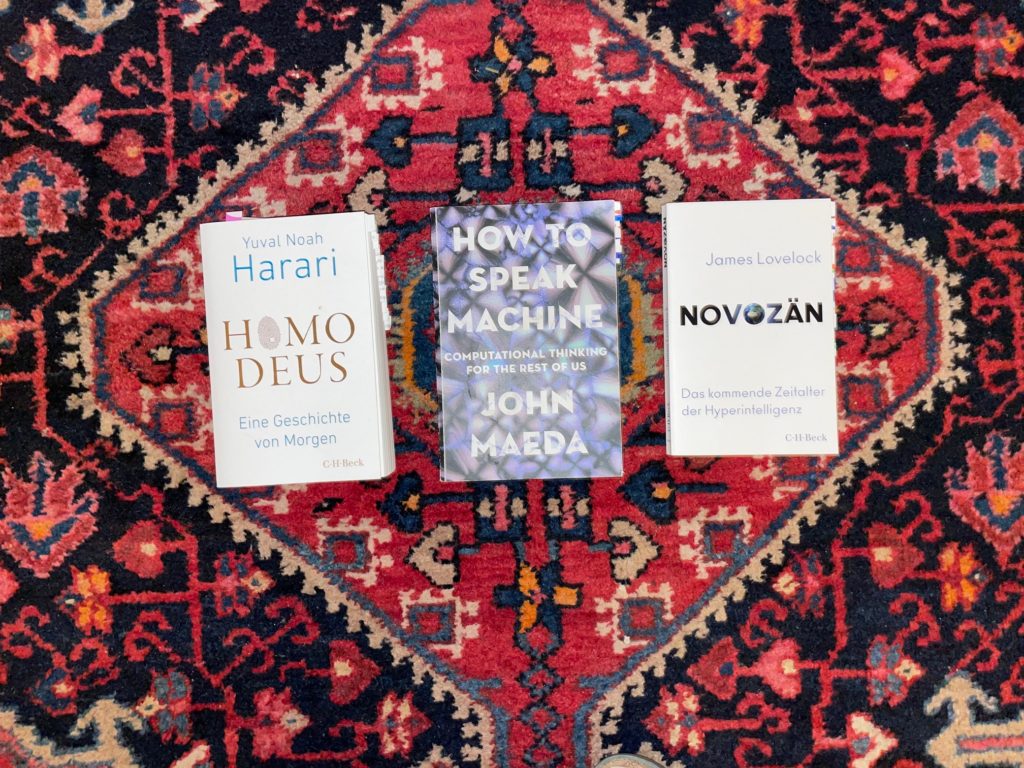
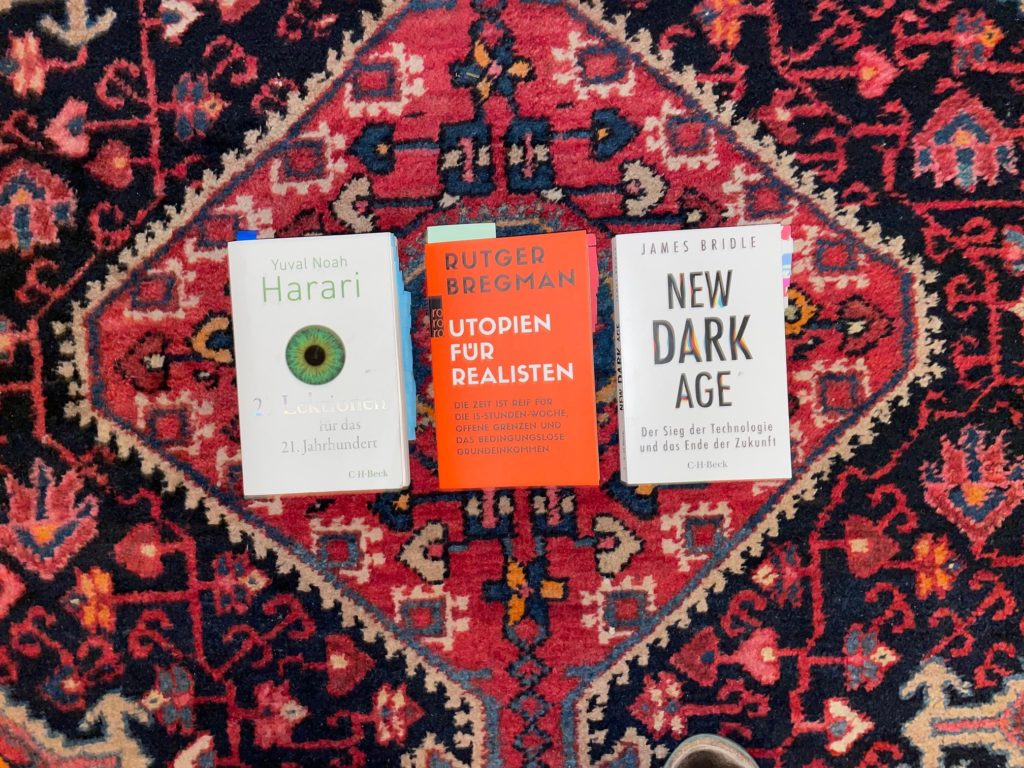
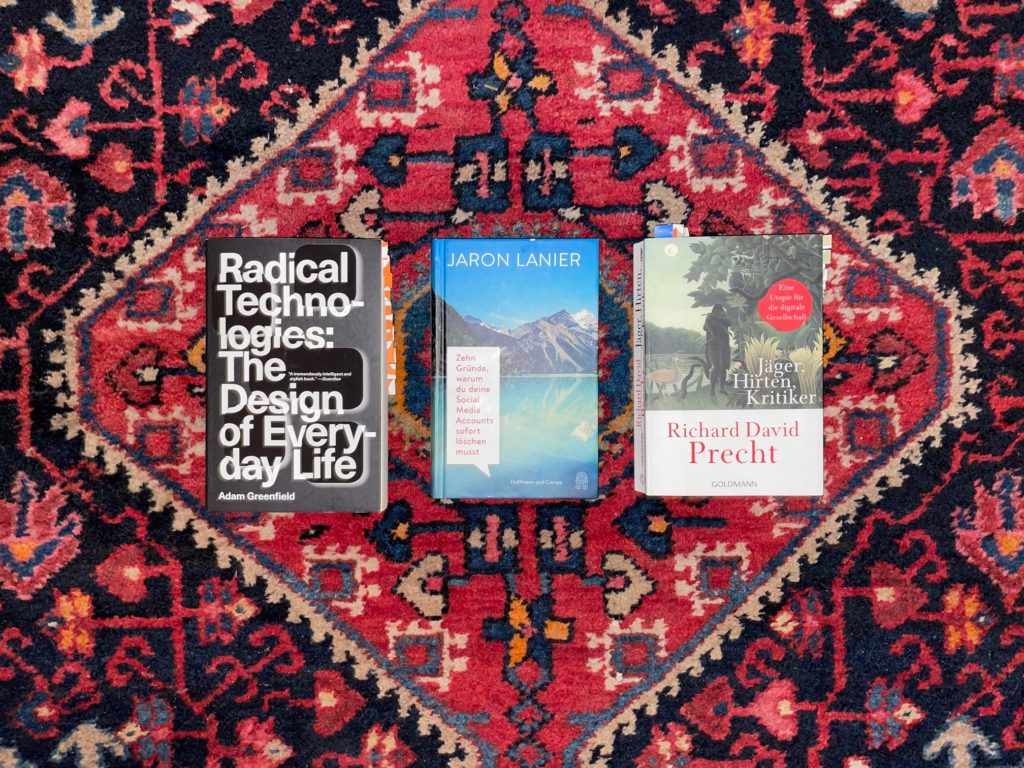
Related
 A Call for Coding Designers
A Call for Coding Designers
This is a call for coding designers. It aims to serve as a proposal and a provocation for creative work […]
 A reflection on Processing Community Day Copenhagen 2023
A reflection on Processing Community Day Copenhagen 2023
I’ve been travelling a lot in the last few months. Still, it was only during a short stay in Copenhagen […]
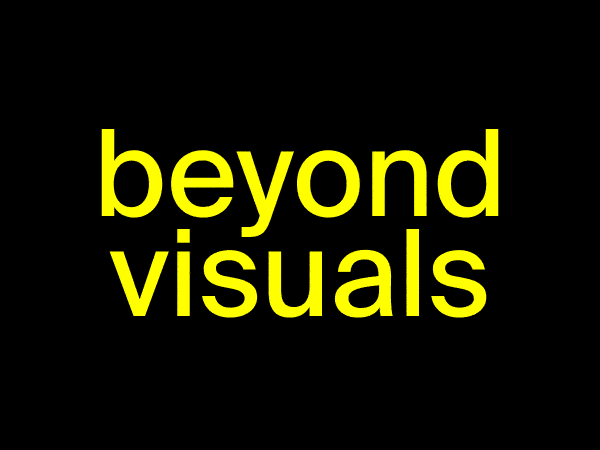 What Creative Coding can teach you beyond crafting visuals
What Creative Coding can teach you beyond crafting visuals
Learning to code has had a bad reputation for ages. Many people have the impression that it’s all about acquiring […]
 How I built myself a Digital Garden
How I built myself a Digital Garden
It was a red hot day in July 2023 when I met Alex Muñoz for breakfast in the morning at […]
 Digital Impact @ Disseny Hub
Digital Impact @ Disseny Hub
A few days ago, I visited the Disseny Hub in Barcelona to see the exhibition “Digital Impact”. On the website, […]
 Demystify Technology – A kind of Manifesto
Demystify Technology – A kind of Manifesto
A Fortunate Look into the Spam Folder When I opened my email program on an ordinary workday in the morning […]
 Thoughts on Artificial Intelligence
Thoughts on Artificial Intelligence
Photo: Vyběr Socky What a ride! I’m sitting in the room of a luxury hotel in Prague, once again packing […]
